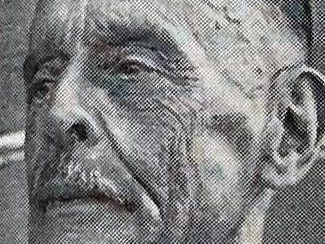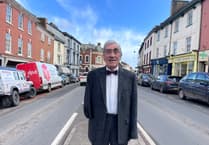RECENT events in Eastern Europe have prompted local historian and Teignmouth Post columnist Christina Siviter to send two stories with a connection to the country.
‘In a 1972 edition of the Post there was a report about a Shaldon couple who had spent a holiday in what was the USSR,’ she said.
The story told of Mr and Mrs Kelly of Broadlands, who had been on a 15-day, £177 per head, tour of the Soviet Union. They flew by BEA to Moscow and their tour included Leningrad, Samarkand… and Kiev.
The Western tourists were supervised by the ‘Soviet touring organisation’ Intourist, no doubt a front for the KGB who would have kept a close eye on visitors, making sure they saw only what was meant to be seen in those suspicious times.
Mr Kelly described his visit as ‘days of colour and delight and a peep behind the Iron Curtain’ telling the Post reporter of visits to the Bolshoi Ballet and the Hermitage Museum.
Their trip included the now beleaguered city of Kiev, known as the Mother of Russian Cities, where ‘new estates complete with shops, theatres and multi-storey flats had made good the Second World War devastation in the capital of Ukraine.
On their ride from the airport to the city they went through a forest where all the very diverse wildlife is strictly preserved’.
Mr Kelly was so impressed with the country and the friendly people he was taking Russian lessons from teacher Peter Constaninoff, MBE, in Teignmouth.
Another report Christina unearthed related to tales of Mr Constaninoff from more than a century ago when the Russian Revolution was in full flow.
Shaldon resident Mr Constaninoff was interviewed by the Post in 1971 when a political row erupted between the Soviet Union and the UK.
Russian emigre Mr Constaninoff was contacted for his views after 100 officials were expelled from London. As an expert in espionage and counter intelligence he would give lectures and public talks, and he said the situation was a grave one.
A teacher of Russian at Teignmouth Grammar School and The Secondary Modern School he was born in St Petersburg in 1900, and went on to fight for the Czarists, initially in the First World War on the Austrian front and then in the civil war which continued until 1922.
Eventully captured by the Bolsheviks he spent three years in prison, was interrogated nightly and living on a diet of salted fish. He was being transported to Siberia where a near certain death awaited him when he managed to escape.
He said: ‘I was being escorted by two young Red Army soldiers and I had some tobacco – rare substance to have in those times.’
He offered his guards some for a smoke. While they were busy rolling their cigarettes he threw tobacco dust into their eyes and ran down a nearby alleyway. After a 40-mile hike he reached safety.
After many adventures he settled down in Shaldon to teach, and where continued to enjoy life in Shaldon and the estuary views. ‘Here is tranquility,’ he said.




